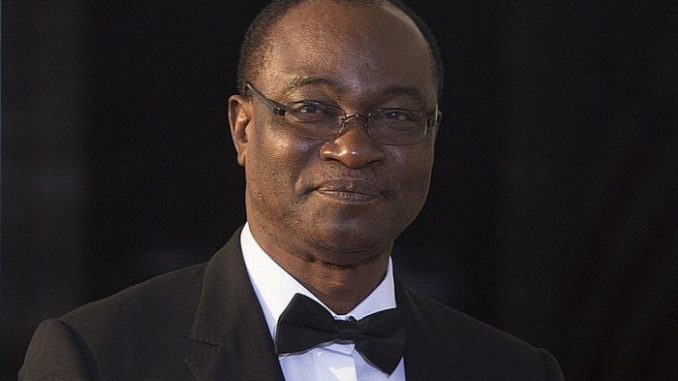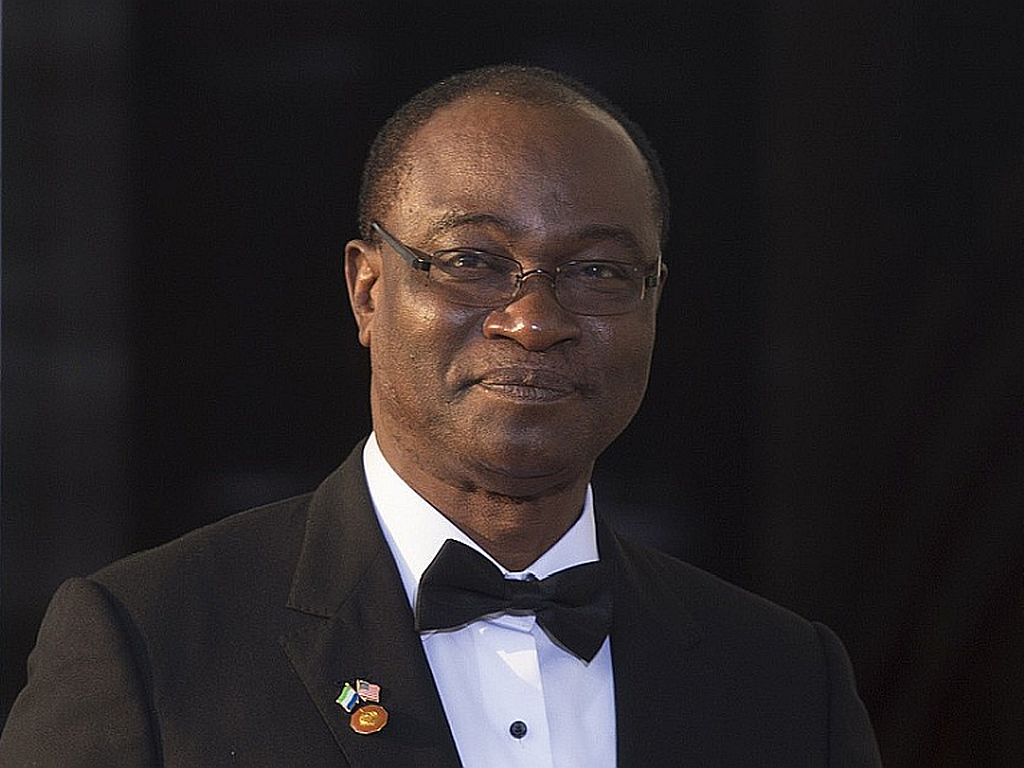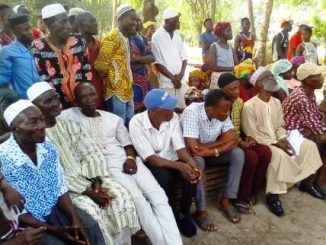
We have been reporting on the very important trip made to New York last week by Sierra Leone’s Minister of Foreign Affairs and International Cooperation, Dr. Samura Kamara to brief African Ambassadors on the close meeting by African Heads of State and representatives of governments on the United Nations Security Council Reform held at Kigali, Rwanda, last year .
We now bring you the full statement delivered by the Foreign Minister during the consultative meeting :
STATEMENT BY DR. SAMURA M.W. KAMARA AT THE CONSULTATIVE MEETING WITH THE AFRICAN GROUP IN NEW YORK ON THE OUTCOME OF THE AU SUMMIT HELD IN KIGALI, RWANDA, JULY 2016
Excellences and colleagues,
Distinguished Permanent Representatives,
Delegates,
Ambassador Tete Antonio, Permanent Representative of the African Union to the UN,
It is with great pleasure that I welcome you all to this consultative meeting on the outcome of the consideration of the C-10 report by the African Union Assembly held in Kigali, Rwanda in July 2016, and to exchange views on possible next steps that could further build on the momentum and support for the Common African Position. This meeting is therefore intended to be interactive.
I would like to thank you all for your active roles in upholding the Ezulwini Consensus and Sirte Declaration on the reform of the UN Security Council.
The documents before you include the Coordinator’s 18th Report and the Decision of the Assembly adopted during the 27th Ordinary Session of the African Union Assembly held in July, 2016 in Kigali, Rwanda. Both documents represent the present position of our leaders and will therefore guide our engagement at the Intergovernmental Negotiations, as well as with other interest groups and Member States at all levels.
The 18th report reflects an overview of ten years of efforts made to date and the challenges going forward, and the decision is a clear and strong reaffirmation of Ezulwini Consensus and Sirte Declaration.
The Report was and its Decision were endorsed by our Heads of State. They all expressed their disappointment at the slow pace of the IGN but were also equally firm in their commitment to uphold the Ezulwini Consensus and Sirte Declaration. The message is that Africa has a legitimate claim which we must continue to pursue until we achieve our objective no matter how long it takes. They all recognized that Security Council reform is a highly sensitive and contentious political issue.
To achieve our collective aspiration therefore, our leaders in their wisdom, emphasized that we must:
- Continue to maintain our position on the Veto and resist the creation of a third category of membership of the Security Council;
- Resist an intermediate/transitional arrangement;
- African countries to delink membership of other interest groups which creates the impression of a divided Africa;
- All AU Member States should continue to defend, promote and advocate the Common African Position on all aspects of the reform at every given opportunity.
The deliberations and subsequent adoption of the report and its decision were informed by the historical injustice that the African continent continues to suffer, being the only continent that does have any representation in the Permanent Category of the Security Council and also under-represented in the Non-permanent category. Any outcome that does not accord to Africa the demands of Ezulwini Consensus and the Sirte Declaration will only further perpetuate the status quo.
We are of the firm conviction that in order to enhance the legitimacy of the decisions of the Security Council, it is expedient to adhere to the African demands.
In other words, consistent with 21st century geo-political realities, the Security Council is yearning for a judicious system of governance, rooted in a culture of trust and mutual respect among the member states.
Going forward, the greatest challenge that we continue to contend with within the IGN is the difficulty in bridging the divergent positions and coming up with a Negotiation Text that could garner support by the required two-thirds majority including all P-5 members. Furthermore, under Article 108 of the UN Charter, amendments to the Charter can only come into force when ratified by two-thirds of Member States including all the Five Permanent Members of the Security Council. Prospects for an agreed Text are inhibited by the nuances in the positions of member states and interest groupings.
The possibility of tabling a draft resolution therefore remains an option, but could in the meantime not be the main focus until demonstrable and dependable progress is made with Member States by securing strong commitment to support the Common African Position beyond the required two thirds majority, in particular, with the P-5.
During a number of extensive outreach with major stakeholders, it was argued that the overlap in membership of interest groups makes it difficult to appreciate positions in terms of coherence and cohesiveness around a particular interest group position. This is one of the challenges that we are faced with in advancing the Common African Position.
Given the growing importance of regional organizations and the myriad challenges facing the international system, the need for meaningful UNSC reform is more and more imperative. The issue of contribution to international peace and security is a collective security issue to which Africa continues to make its fair contribution on the continent and elsewhere around the world. Africa should therefore be seen as a responsible stakeholder in keeping the peace and security world-wide.
We have made some progress in canvassing and promoting the Common African Position. This is exhibited by the enormous support and sympathy that the Common African Position continues to enjoy within and outside the on-going intergovernmental negotiations. The Common African Position therefore remains valid and viable.
We should take these gains into account, understanding the dynamics of the reform within the context of rival positions, conflicting positions and ideas and not align with other positions that have the potential to cause more problems or reverse the gains made.
We should in that regard, continue to call for a comprehensive reform of the Security Council, rejecting any interim, intermediary/intermediate approach or transitional reform models as a means of correcting the historical injustice.
Extension of the VETO power to Africa as a member of the Permanent category of the Security Council must be seen by the P-5 and other interest groups and stakeholders as the most valid and obvious way to assert legitimacy and equality in global decision-making.
On the question of redressing the historical injustice that Africa continues to suffer, no Member State has openly rejected Africa’s demands. This evidently demonstrates the legitimacy the Common African Position enjoys.
We should in that regard, resist the temptation and efforts by other Member States and interest groups to divide and distract us from our Common Position. In particular, we cannot yield to the pressure to those who ask us to be flexible when they themselves have not shown any flexibility towards our position.
In order to attain the ultimate result of the provisions of the Ezulwini Consensus and Sirte Declaration, we should stay the course, continue to speak with one voice and remain united on all aspects of the UN Security Council reform process.
Our next report will be presented to the Assembly during the July Summit.
I now give the floor to my colleagues for their comments after which the floor will be open to you for your views and comments.




